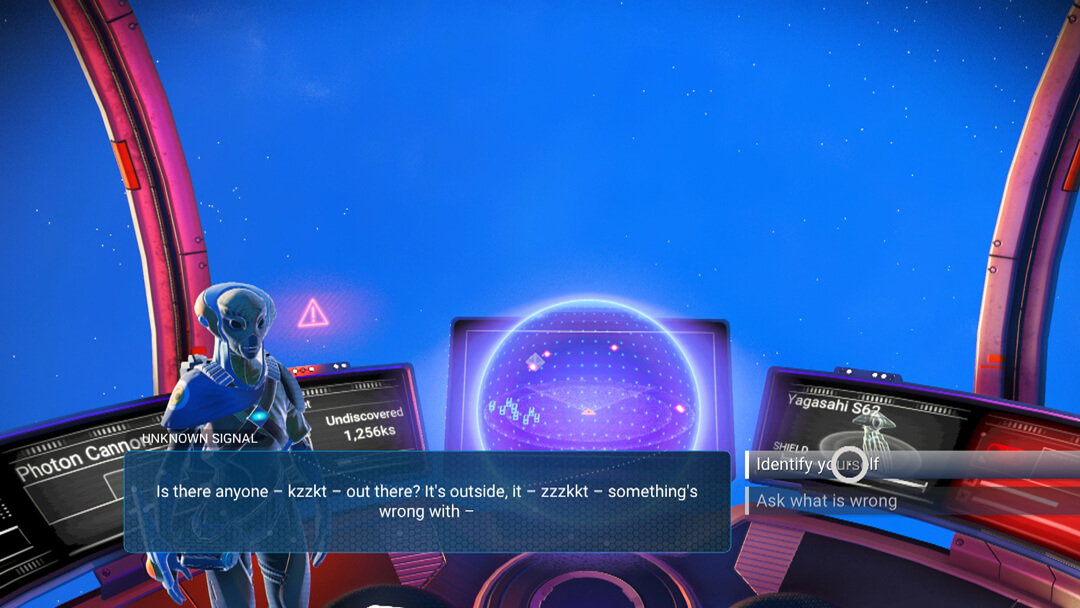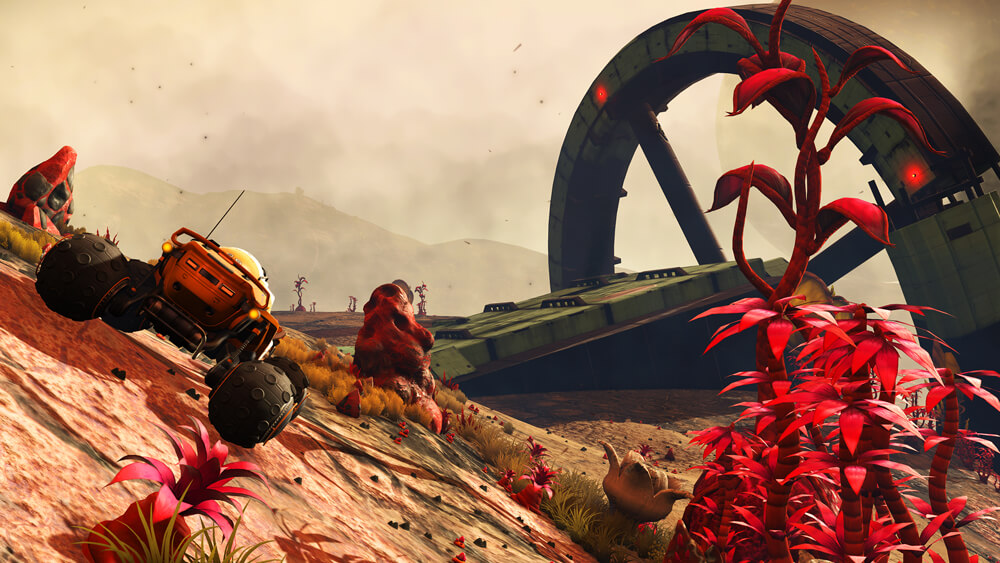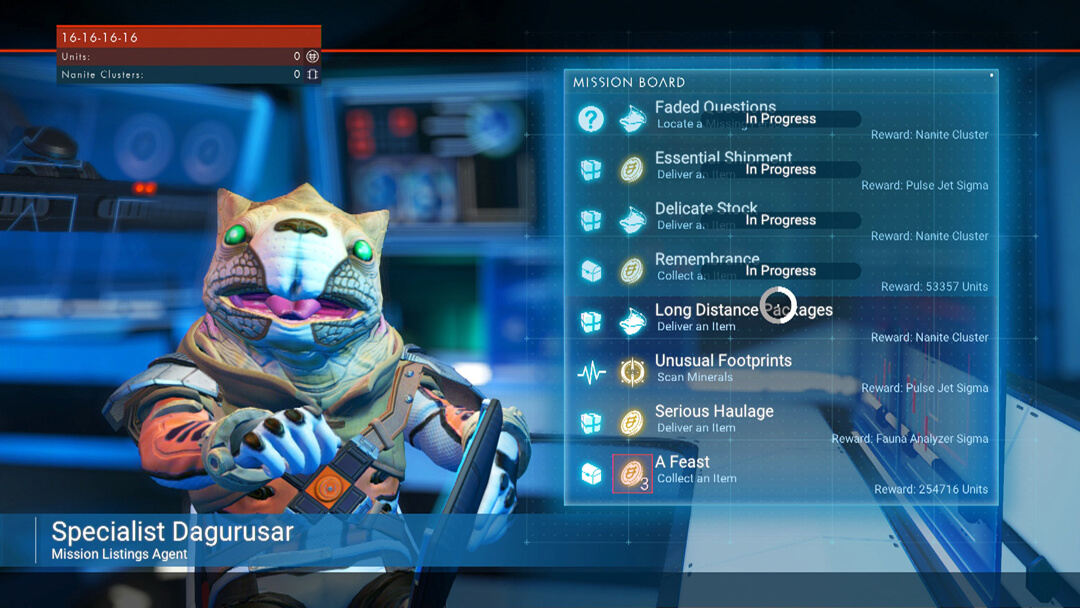
Open universe exploration game No Man’s Sky has announced a major update to mark the game’s first anniversary – including a basic multiplayer function for the first time.
The much-discussed game, which has divided the gaming community over its final product and whether or not it delivered on its promise of a near endless universe, has added a raft of new features in an update called Atlas Rises.
As well as a basic form of multiplayer, which will enable up to 16 players in close proximity to each other to voice chat.
Players who come close to each other will see their fellow travellers visualised as strange floating orbs, and will be able to travel with them and meet up on other planets.

This is just the tip of the update iceberg however, with Atlas Rises also containing 30 hours of new story content that includes the introduction of a brand new alien race.
Developer Hello Games has also said the variety and visual quality of different planets has again been expanded and improved, with new planet types also being added to the game.

Those new planets could also have some new things to offer beyond terrain as well, as gigantic crashed freighter ships will now begin to appear, ready to be salvaged for materials.
A terrain editor has also been added, as has a new mission agent offering up side tasks to be undertaken on a user’s journey.

Away from the actual gameplay, several aspects of the game’s interface have also been tweaked – including a new look to the galaxy menu, which can now be used to check the wealth, economy and conflict levels to different star systems.
What this means is players will be able to work out how money and resource rich a system is, alongside how dangerous it is, before choosing to make it a destination.
No Man’s Sky may have been heavily criticised in some quarters at launch for perhaps not being the far-reaching game many thought it would be, but Hello Games have now pushed out a series of huge, free updates to constantly improve the playing experience.
Far from a flash in the pan, No Man’s Sky is beginning to look more and more like a long-haul hit.